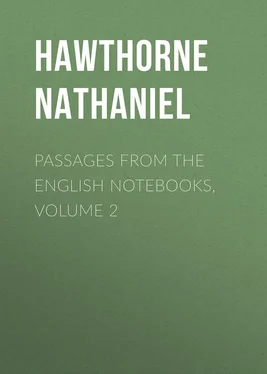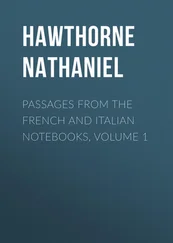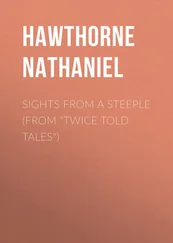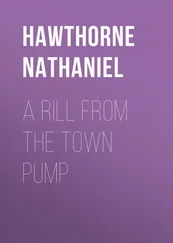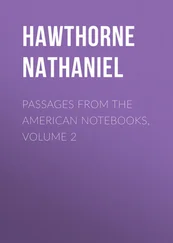Nathaniel Hawthorne - Passages from the English Notebooks, Volume 2
Здесь есть возможность читать онлайн «Nathaniel Hawthorne - Passages from the English Notebooks, Volume 2» — ознакомительный отрывок электронной книги совершенно бесплатно, а после прочтения отрывка купить полную версию. В некоторых случаях можно слушать аудио, скачать через торрент в формате fb2 и присутствует краткое содержание. Жанр: literature_19, foreign_antique, foreign_prose, на английском языке. Описание произведения, (предисловие) а так же отзывы посетителей доступны на портале библиотеки ЛибКат.
- Название:Passages from the English Notebooks, Volume 2
- Автор:
- Жанр:
- Год:неизвестен
- ISBN:нет данных
- Рейтинг книги:5 / 5. Голосов: 1
-
Избранное:Добавить в избранное
- Отзывы:
-
Ваша оценка:
- 100
- 1
- 2
- 3
- 4
- 5
Passages from the English Notebooks, Volume 2: краткое содержание, описание и аннотация
Предлагаем к чтению аннотацию, описание, краткое содержание или предисловие (зависит от того, что написал сам автор книги «Passages from the English Notebooks, Volume 2»). Если вы не нашли необходимую информацию о книге — напишите в комментариях, мы постараемся отыскать её.
Passages from the English Notebooks, Volume 2 — читать онлайн ознакомительный отрывок
Ниже представлен текст книги, разбитый по страницам. Система сохранения места последней прочитанной страницы, позволяет с удобством читать онлайн бесплатно книгу «Passages from the English Notebooks, Volume 2», без необходимости каждый раз заново искать на чём Вы остановились. Поставьте закладку, и сможете в любой момент перейти на страницу, на которой закончили чтение.
Интервал:
Закладка:
From Downing Street we crossed over and entered Westminster Hall, and passed through it, and up the flight of steps at its farthest end, and along the avenue of statues, into the vestibule of the House of Commons. It was now somewhat past five, and we stood at the inner entrance of the House, to see the members pass in, Bennoch pointing out to me the distinguished ones. I was not much impressed with the appearance of the members generally; they seemed to me rather shabbier than English gentlemen usually, and I saw or fancied in many of them a certain self-importance, as they passed into the interior, betokening them to be very full of their dignity. Some of them looked more American – more like American politicians – than most Englishmen do. There was now and then a gray-headed country gentleman, the very type of stupidity; and two or three city members came up and spoke to Bennoch, and showed themselves quite as dull, in their aldermanic way, as the country squires… Bennoch pointed out Lord John Russell, a small, very short, elderly gentleman, in a brown coat, and so large a hat – not large of brim, but large like a peck-measure – that I saw really no face beneath it. By and by came a rather tall, slender person, in a black frock-coat, buttoned up, and black pantaloons, taking long steps, but I thought rather feebly or listlessly. His shoulders were round, or else he had a habitual stoop in them. He had a prominent nose, a thin face, and a sallow, very sallow complexion;.. and had I seen him in America I should have taken him for a hard-worked editor of a newspaper, weary and worn with night-labor and want of exercise, – aged before his time. It was Disraeli, and I never saw any other Englishman look in the least like him; though, in America, his appearance would not attract notice as being unusual. I do not remember any other noteworthy person whom we saw enter; in fact, the House had already been some time in session, and most of the members were in their places.
We were to dine at the Refectory of the House with the new member for Boston; and, meanwhile, Bennoch obtained admittance for us into the Speaker's gallery, where we had a view of the members, and could hear what was going on. A Mr. Muntz was speaking on the Income Tax, and he was followed by Sir George Cornewall Lewis and others; but it was all very uninteresting, without the slightest animation or attempt at oratory, – which, indeed, would have been quite out of place. We saw Lord Palmerston; but at too great a distance to distinguish anything but a gray head. The House had daylight in it when we entered, and for some time afterwards; but, by and by, the roof, which I had taken to be a solid and opaque ceiling, suddenly brightened, and showed itself to be transparent; a vast expanse of tinted and figured glass, through which came down a great, mild radiance on the members below.
The character of the debate, however, did not grow more luminous or vivacious; so we went down into the vestibule, and there waited for Mr. – , who soon came and led us into the Refectory. It was very much like the coffee-room of a club. The strict rule forbids the entrance of any but members of Parliament; but it seems to be winked at, although there is another room, opening beyond this, where the law of seclusion is strictly enforced.
The dinner was good, not remarkably so, but good enough, – a soup, some turbot or salmon, cutlets, and I know not what else, and claret, sherry, and port; for, as Mr. – said, "he did not wish to be stingy." Mr. – is a self-made man, and a strong instance of the difference between the Englishman and the American, when self-made, and without early education. He is no more a gentleman now than when he began life, – not a whit more refined, either outwardly or inwardly; while the American would have been, after the same experience, not distinguishable outwardly, and perhaps as refined within, as nine tenths of the gentlemen born, in the House of Commons. And, besides, an American comes naturally to any distinctions to which success in life may bring him; he takes them as if they were his proper inheritance, and in no wise to be wondered at. Mr. – , on the other hand, took evidently a childish delight in his position, and felt a childish wonder in having arrived at it; nor did it seem real to him, after all..
We again saw Disraeli, who has risen from the people by modes perhaps somewhat like those of Mr. – . He came and stood near our table, looking at the bill of fare, and then sat down on the opposite side of the room with another gentleman, and ate his dinner. The story of his marriage does him much credit; and indeed I am inclined to like Disraeli, as a man who has made his own place good among a hostile aristocracy, and leads instead of following them.
From the House of Commons we went to Albert Smith's exhibition, or lecture, of the ascent of Mont Blanc, to which Bennoch had orders. It was very amusing, and in some degree instructive. We remained in the saloon at the conclusion of the lecture; and when the audience had dispersed, Mr. Albert Smith made his appearance..
Nothing of moment happened the next day, at least, not till two o'clock, when I went with Mr. Bowman to Birch's eating-house (it is not Birch's now, but this was the name of the original founder, who became an alderman, and has long been dead) for a basin of turtle-soup. It was very rich, very good, better than we had at the Lord Mayor's, and the best I ever ate.
In the evening, Mr. J. B. Davis, formerly our Secretary of Legation, called to take us to dine at Mr. – 's in Camden Town. Mr. – calls his residence Vermont House; but it hardly has a claim to any separate title, being one of the centre houses of a block. I forget whether I mentioned his calling on me. He is a Vermonter, a graduate of Yale College, who has been here several years, and has established a sort of book brokerage, buying libraries for those who want them, and rare works and editions for American collectors. His business naturally brings him into relations with literary people; and he is himself a kindly and pleasant man. On our arrival we found Mr. D – and one of his sisters already there; and soon came a Mr. Peabody, who, if I mistake not, is one of the Salem Peabodys, and has some connection with the present eminent London Mr. Peabody. At any rate, he is a very sensible, well-instructed, and widely and long travelled man. Mr. Tom Taylor was also expected; but, owing to some accident or mistake, he did not come for above an hour, all which time our host waited… But Mr. Tom Taylor, a wit, a satirist, and a famous diner out, is too formidable and too valuable a personage to be treated cavalierly.
In the interim Mr. – showed us some rare old books, which he has in his private collection, a black-letter edition of Chaucer, and other specimens of the early English printers; and I was impressed, as I have often been, with the idea that we have made few, if any, improvements in the art of printing, though we have greatly facilitated the modes of it. He showed us Dryden's translation of Virgil, with Dr. Johnson's autograph in it and a large collection of Bibles, of all dates, – church Bibles, family Bibles of the common translation, and older ones. He says he has written or is writing a history of the Bible (as a printed work, I presume). Many of these Bibles had, no doubt, been in actual and daily use from generation to generation; but they were now all splendidly bound, and were likewise very clean and smooth, – in fact, every leaf had been cleansed by a delicate process, a part of which consisted in soaking the whole book in a tub of water, during several days. Mr. – is likewise rich in manuscripts, having a Spanish document with the signature of the son of Columbus; a whole little volume in Franklin's handwriting, being the first specimen of it; and the original manuscripts of many of the songs of Burns. Among these I saw "Auld Lang Syne," and "Bruce's Address to his Army." We amused ourselves with these matters as long as we could; but at last, as there was to be a party in the evening, dinner could no longer be put off; so we took our seats at table, and immediately afterwards Mr. Taylor made his appearance with his wife and another lady.
Читать дальшеИнтервал:
Закладка:
Похожие книги на «Passages from the English Notebooks, Volume 2»
Представляем Вашему вниманию похожие книги на «Passages from the English Notebooks, Volume 2» списком для выбора. Мы отобрали схожую по названию и смыслу литературу в надежде предоставить читателям больше вариантов отыскать новые, интересные, ещё непрочитанные произведения.
Обсуждение, отзывы о книге «Passages from the English Notebooks, Volume 2» и просто собственные мнения читателей. Оставьте ваши комментарии, напишите, что Вы думаете о произведении, его смысле или главных героях. Укажите что конкретно понравилось, а что нет, и почему Вы так считаете.
